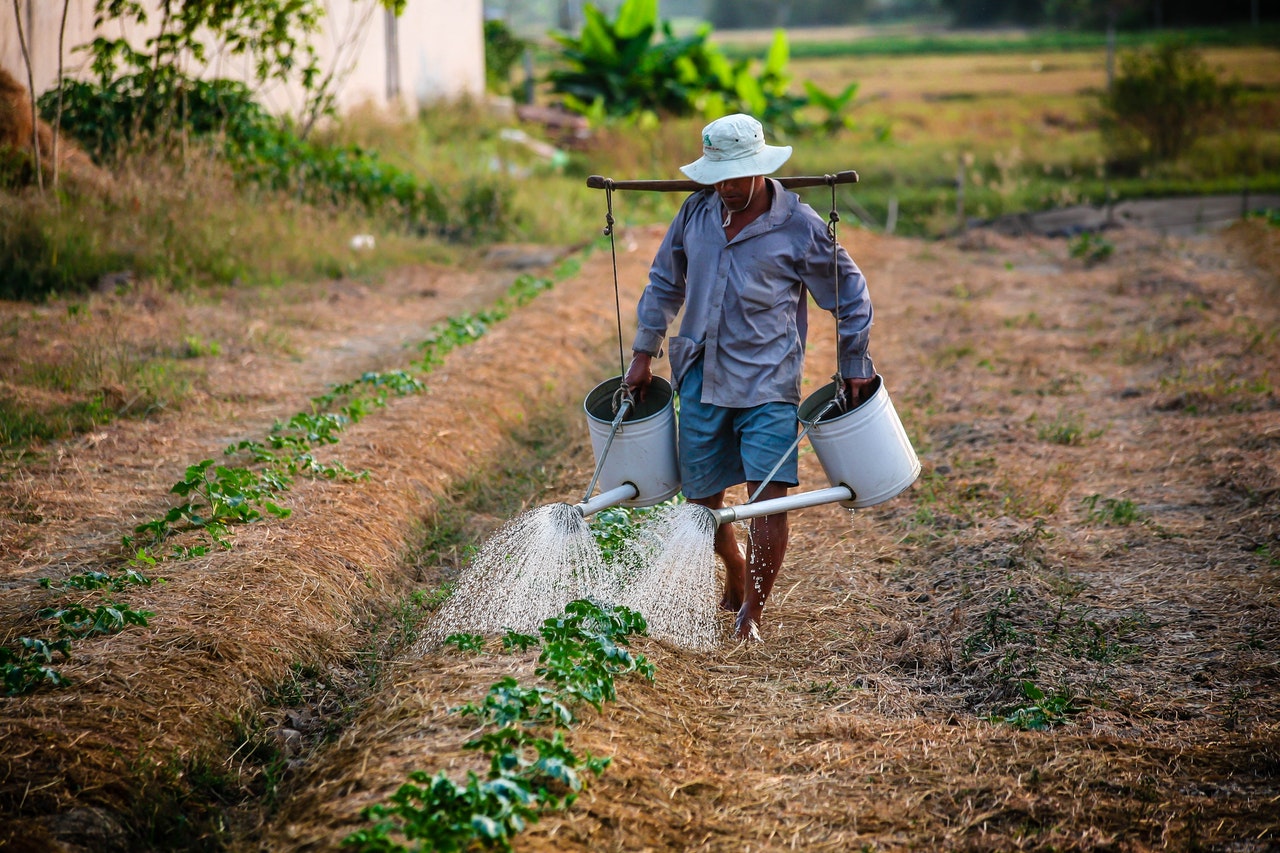Organic Farming - (by Inderpreet Singh)

To put it another way, organic farming combines traditional farm practises with cutting-edge scientific research and modern farm innovations. Using manure and biological soil disinfestation instead of synthetic fertilisers, for example. Organic farmers are
true lifesavers who work tirelessly to produce nutritious and healthy crops.
When did the Organic Agriculture Movement Begin?
The need for more sustainable food production became more apparent as the world's population grew rapidly. Unsustainable farming practises, which are solely focused on increasing yields, exacerbate global issues such as:
Changes in the climate
Biodiversity decline
Erosion of the soil
Pollution of the world's most valuable natural resources (soil and water)
Organic Farming's Foundational Principles
Each country has its own set of rules for organic farming. There are, however, some principles that all organic farmers must follow. This is what they are:
Organic farming is meant to protect and improve the health of all organisms, according to the health principle.
The ecological principle states that organic farming should protect and benefit the environment (landscape, climate, natural habitats, biodiversity, air, water, and soil). The fairness principle aims to provide socially and environmentally appropriate management of environmental resources, as well as a sufficient supply of high-quality food and other products.
In organic farm management, the principle of care emphasises the importance of caution and responsibility.
Different Practices in Organic Farming
Each country regulates the laws and regulations for organic farming separately. Based on that there are different types of practices included in various types of organic farming. However, there are some popular organic farm practices common to most organic farmers:
- Crop rotation used to maintain soil fertility and to improve crop protection from various pests
- Organic nutrient management, is based on the improvement of soil organic matter through manuring, composting or mulching
- Growing cover crops, is a beneficial practice for controlling insect pests and weeds, preventing soil erosion, as well as improving the nutrient content in the soil
- Preventive crop protection measures, such as choosing resistant varieties, the adaptation of planting or sowing, and harvesting time
- Relying on natural predators as a biological pest protection measure
- Weeding as a non-chemical weed management practice
- Anaerobic soil disinfestation that eliminates or reduces soil-borne pests
- Proper space between crops
- Mechanical soil cultivation
- Recycling materials
- Relying on renewable resources
Organic Farming: Remaining Profitable While Protecting the Environment
One of the core debates in organic or conventional farming is the topic of profitability. While the practices of both can be debated, farmers are mostly concerned about the productivity and profitability of each. Farm productivity depends on many factors, including crop characteristics, soil type, weather conditions, and insect pests and diseases, among others.
Conventional farming is believed to be more productive than organic. However, higher input costs and lower market price does affect its profitability. If we take a closer look at the yields, organic farming is still less productive than conventional. One reason for this is the fact that organic farming boosts crop growth, while conventional farming eliminates potential crop damages.
There are some examples showing organic farming as holding great potential for adequate yields. Research conducted by the Rodale Institute proved that organically grown corn has a yield that is 31% higher than conventionally grown corn during years of drought. Finally, organic farming has shown to be an efficient practice in spite of typical lower yields. One reason for the efficiency of organic production is the higher market price that organically grown crops can demand. Certified organic products tend to be more expensive for public purchase than their conventional counterparts.
Top Reasons to Farm Organic
Organic farming doesn’t just mean going ‘back’ to traditional methods. In fact, many farming methods used in the past are still being used today. Organic farming takes the best of older more traditional farming techniques and combines them with modern scientific knowledge. So, should farmers switch to organic farming or modernize through conventional farming techniques?
The answer really depends on several factors. These include the type of farm in question, the location, the crop in question, and the purpose of production. If you have accounted for all of these factors and you are still undecided check out our post on twelve reasons to farm organic.
Will Organic Farming Replace Conventional?
Consumer concern over organic food production and the effect of modern farming methods on the environment in particular animal welfare are increasing daily. More and more farmers are converting to organic farming. A good example of the shift to organic farming can be seen in Bhutan. With just 700,000 people, most of whom are farmers, Bhutan has become the first country in the world that has converted 100% to organic farming. But, since organic foods are produced without synthetic inputs it’s a question if organic will ever truly replace conventional farming methods.
Organic farming facts
Organic farming is a method of growing food that relies on organic fertilization and growing techniques that are believed to produce healthier food for consumers, without the use of chemical pesticides. Prior to the mid-1800s artificial fertilizers were not used to grow food. Once introduced these cheap fertilizers made it easier to produce large crops, and when combined with chemical pesticides, it was possible to have less waste and higher yields. As concerns about toxins in the environment and in our food continues to grow, more people are returning to organic farming to protect their health. Chemicals used to grow non-organic food have been proven to have serious side effects in humans, resulting in diseases such as cancer.
| ||
| ||
|


Informative 💯
ReplyDelete👍
ReplyDeleteInformative
ReplyDelete👌🏻👌🏻
ReplyDelete